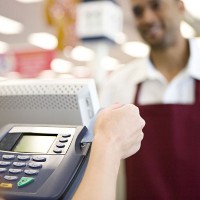
What You Need to Know About Merchant Fees
This article submitted by: www.charge.com.
The most important part of a merchant account contract is the fee structure. Business owners should know the basic fee structure prior to opening an account. The discount rate is the most important rate on the contract. The discount rate is a percentage that is charged to you per transaction and gets paid to the processing company for the merchant account. If you only do face to face transactions, you will have a low rate but if you also sell online, the online rate is higher. The setup fee is assesses to you to set up the merchant account
This is only a one time fee and some companies will charge this setup fee whereas others will waive the fee as part of a special they may be running at the time you sign up. The equipment fee is for the credit card machine or the peripherals that go along with it. The chargeback fee is assessed to you if a customer disputes the credit card charge on their account that came from your place of business. If the credit card company sides with the consumer, you are assessed this fee for the return. The minimum monthly fee is a charge that is assessed when you do not met the minimum Visa and MasterCard requirements. This fee is to make up the difference should you sales be low for that particular month. The address verification system fee is only assessed if you manually key in the consumer’s credit card instead of swiping it.
What is Terminated Merchant File (TMF)?
This article submit by Credit Card Processing Blog.
A terminated merchant file, or TMF, is used when a merchant wants to open a merchant account in order to accept credit cards. When consumers do not pay their credit card payments or auto payments, the creditor has the option to report the consumer to one of three credit reporting agencies. If this occurs and the consumer then tries to get a loan or open another credit card, the potential creditor can pull their credit report and see that they were late on their Citibank payment or that they missed five automobile payments. A consumer’s credit report can hinder their ability to get a loan, a car or even an apartment.
What is the MATCH / TMF File?
When consumers do not honor the terms of their credit agreements, the creditor may report the default to a credit reporting agency. If the consumer applies for additional credit, the new creditor obtains a credit report and learns about the consumer’s previous history. The merchant processing banks (also known as “acquiring” banks) do not have a similar credit-reporting agency available that can report information about the way that a business handles its merchant processing responsibilities. The card associations, instead, use a file known as “MATCH.” The MATCH File is a database file, previously and most commonly known as the Terminated Merchant File “TMF.” This Terminate Merchant File is used by MasterCard and Visa processing banks, known as “acquiring banks,” to identify specific merchants and principals who have already been terminated. Once a merchant is on this list, it is highly unlikely that future merchant account applications will be approved. The “TMF”, or MATCH list, is essentially a BLACKLIST from which it is almost impossible to be removed.
How exactly is the MATCH file used when I apply for a Merchant Account?
Your new merchant acquiring bank must query every merchant account application against the Terminated Merchant File to determine whether a company, or its principals, has been terminated. If your new acquirer receives a response indicating a “possible match” against a merchant or individual listed on the file, the acquirer must double check and make certain the listed merchant or individual is truly the same as the one for which the inquiry was generated. If so, the acquirer must contact the listing bank to determine why the business or individual was added to the file.
If a previous acquirer listed your business or your name, that does not mean you are prohibited from obtaining merchant processing privileges in the future, however, being on the Terminated Merchant File makes it VERY unlikely that you will be approved for a merchant account with most merchant service providers. The new acquirer is to base its approval decision on complete investigation and to use the Terminated Merchant File as an informational tool in the decision making process. Some acquirers will issue an approval conditioned upon having the listing removed by the prior processor while others will review the circumstances surrounding the listing and make an informed decision.
How Merchant Accounts Work
If you have a business today, you need to have a merchant account. A merchant account will allow you to accept credit cards from customers. Traditionally, people use to pay for goods and services with cash but nowadays, people hardly use cash anymore since it is more convenient for them to just swipe a credit card. In addition, credit cards are more secure than cash. People can track all their purchases with credit cards unlike cash.
There are several companies that offer merchant accounts which you can set up. You want to be sure to pick the best account for your particular needs. Your needs will depend on what kind of transactions you will be accepting and how many transactions you think you will handle.
Another consideration for you to think about is the kind of terminal you will require. The credit card terminal is the device that will allow you to accept the credit cards and will also allow communication between you and the credit card company. Basically the way that it works is that the customer will swipe their credit card through the terminal. The terminal “checks” with the credit card company of the customer to be sure the funds are available or more specifically, that the card is active and the transaction is approved. You then get a message stating the transaction was approved or not approved. A number will be made available for the customer to call if their transaction was not approved.



